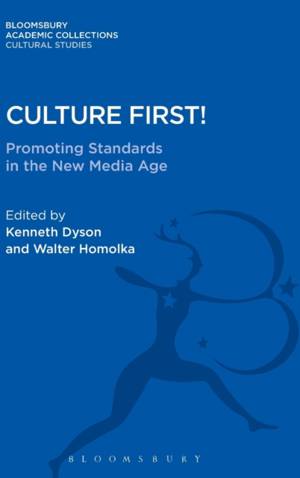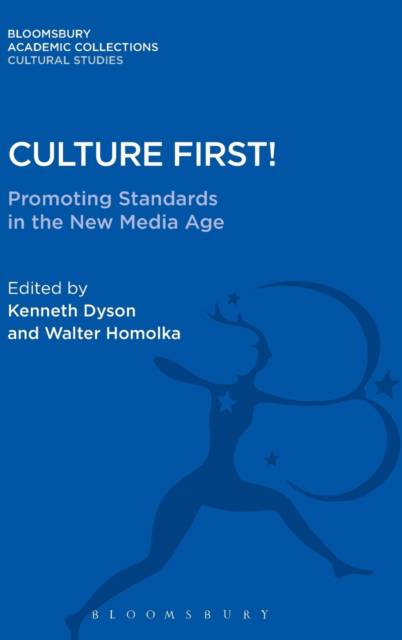
- Afhalen na 1 uur in een winkel met voorraad
- Gratis thuislevering in België vanaf € 30
- Ruim aanbod met 7 miljoen producten
- Afhalen na 1 uur in een winkel met voorraad
- Gratis thuislevering in België vanaf € 30
- Ruim aanbod met 7 miljoen producten
Zoeken
Culture First!
Promoting Standards in the New Media Age
€ 271,45
+ 542 punten
Omschrijving
We are increasingly conscious of living in an era whose scale, dimensions and implications we do not fully comprehend. 'Interactivity', 'virtual reality' and 'global communications' are some of the most obvious dimensions of this new reality. Its implications include cross-media acquisitions and mergers by players like Murdoch, Viacom and Disney, and major questions about the future of the printed word and reading.
This book does not attempt to offer a broad survey of the new digital age in all its aspects. Instead, it restricts its questions to cultural standards and the issue of quality in media. Culture First! argues that the proper study of culture is normative; and that the proper, and neglected, purpose of cultural studies should be the nurturing of normative argument and judgement. This purpose can be better pursued if we return to the distinction between our 'best self' and our 'ordinary self' when thinking about cultural questions; if we seek to articulate and think rigorously about aesthetic and ethical standards; and if we recognize the specific cultural values of the printed word and reading as an activity and that the printed word is more than just a medium.Specificaties
Betrokkenen
- Uitgeverij:
Inhoud
- Aantal bladzijden:
- 208
- Taal:
- Engels
- Reeks:
Eigenschappen
- Productcode (EAN):
- 9781474281966
- Verschijningsdatum:
- 6/10/2016
- Uitvoering:
- Hardcover
- Formaat:
- Genaaid
- Afmetingen:
- 156 mm x 234 mm
- Gewicht:
- 471 g

Alleen bij Standaard Boekhandel
+ 542 punten op je klantenkaart van Standaard Boekhandel
Beoordelingen
We publiceren alleen reviews die voldoen aan de voorwaarden voor reviews. Bekijk onze voorwaarden voor reviews.






